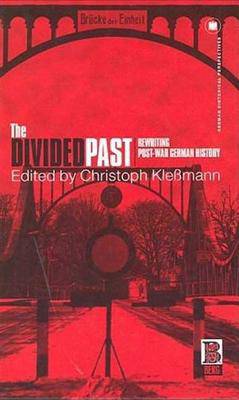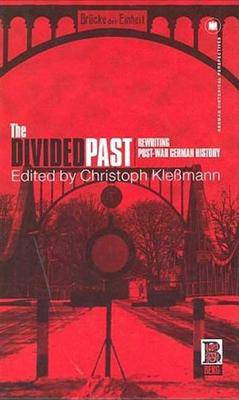
- Retrait gratuit dans votre magasin Club
- 7.000.000 titres dans notre catalogue
- Payer en toute sécurité
- Toujours un magasin près de chez vous
- Retrait gratuit dans votre magasin Club
- 7.000.000 titres dans notre catalogue
- Payer en toute sécurité
- Toujours un magasin près de chez vous
The Divided Past
Rewriting Post-War German History
322,45 €
+ 644 points
Description
This book tackles head on the central problems of writing German post-war history in the aftermath of unification. Since 1990, historians have been debating whether the development of the Federal Republic and the East German State constituted separate histories or whether they share what should be considered a joint past. This book addresses the specific forms of segregation and interconnectedness between the 'twoGermanies' and acknowledges the asymmetry of the relationship, as well as the effect that this had on the internal and external policies of both sides. This is a book that confronts the need for historiography to break away from the traditional master narrative. It offers an alternative in the form of the differing points of view necessary to gain a new perspective on the central problem of a separate, yet joint, German post-war history. Drawing on both methodological and historiographicalapproaches, authors tackle this vexed problem in the context of generational and woman's history, secularization, the labour movement, and the legitimization of the "workers' state", and culminate by addressing the perennial question: how does a nation live with catastrophe? 'Includes both programmatic statements and examples of work from a German national perspective ... For Klessmann, although the two states were separate entities, their histories were nonetheless inextricably interconnected. He believes that by exploring the influence of each German state on the other, much can be learned about the postwar Germanies ... According to Klessmann, the West was present in the East in a variety of ways, but perhaps most importantly as ''an image transmitted via the media and relatives that served as a constant point of reference for East Germans judging their standard of living''.'Journal of Modern History, Volume 75, Number 3, September 2003
Spécifications
Parties prenantes
- Editeur:
Contenu
- Nombre de pages :
- 224
- Langue:
- Anglais
- Collection :
Caractéristiques
- EAN:
- 9781859735114
- Date de parution :
- 01-10-01
- Format:
- Livre relié
- Format numérique:
- Genaaid
- Dimensions :
- 117 mm x 296 mm
- Poids :
- 353 g






